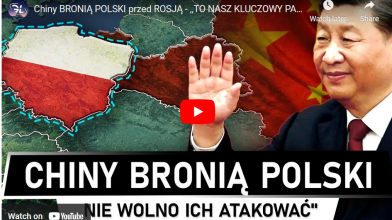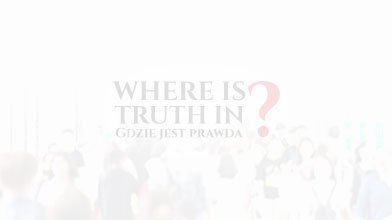East or West
East and West (or West and East) - written on the occasion of the skirmish between Hungary and Poland on the one hand, and the EU on the other. (Dec.21,20)
Very few contemporary Poles are aware of the historical importance of the contemporary Polish-Hungarian alliance. Exactly 64 years ago, in 1956, Hungarian workers started their revolution as a strike of solidarity with Polish workers on strike in Poznań. As some of our compatriots may remember, Hungary was attacked by the Soviet Union as a result of this uprising. The same fate spared the Poles, although attempts were made to get to Poland more or less at the same time. The entry of Russians into Poland was stopped after the then Polish armed communist forces made it clear to their Russian colleagues that if they continued, there would be blood. Back then, in 1956, the cause of the movement was the widespread dissatisfaction of the workers, that is, those on whose behalf the communists ruled, with this very communist power, and now it is widespread dissatisfaction with the neoliberal power structure of the West.
It is obvious that Hungarian and Polish societies were particularly strongly affected by external political and economic oppression, whether from the political imperialism of the East or the economic imperialism of the West.
This process of struggling between East and West has been characteristic of our history since at least the divisions of Poland in the 18th century and continues to this day. In our Polish individual, but common identity, one could almost feel the same trains that are pulling our society and nation in opposite directions. At the same time, our identification with the West is ... full of ambiguities, as Bronisław Wildstein (Siec 49) realizes: "Post-communist countries are filled with complexes. Almost half a century of their inhabitants dreamed that they would be like in the West." The Prime Minister of Slovenia paints a more general picture: "most of the countries of Eastern Europe joined the EU with the conviction that it is primarily an economic union of sovereign states. It did not occur to them that someone would impose ... "(Siec49.)
- We want to be like in the West, adds Wildstein. And, of course, Poland - the bulwark of Christianity. And on the other side of Russia, which we fear and do not trust 'because we know nothing with them'. In a word, we are afraid of the East and the West does not really want us. What to do?
First of all, look at yourself and ask if we are the West. We are not - modern history tells us. Are we the East? Not really. What are we? We are exactly what we are, this is the land between East and West (or West and East), we are the bridge through which the armies or the neighbors' economies passed, one to the East and the other to the West, and we used one or the other help. We are exactly the border that separates the West from the East, the border which, as we know, has so far forced us to choose different, opposite pillars of this bridge. Therefore, the question arises whether we want to be such a bridge?
What is our choice? Well, what choice do we have?
In fact, we cannot abandon our geographical room as a society, although many of us leave individually, because it is difficult to survive in the country. For everyone for a different reason. It follows that if, as a Polish society, we do not abandon ourselves, the only thing we can do is change the nature of this bridge. One could say that it is our historical task to transform the worst war bridge of the war we are so far into a peace bridge. It is a historical task, because it gives us a noble and rational goal, but at the same time it is an amazing gift for all of Europe from East to West and from West to East - a gift of peace that really binds us all together. And it will allow us to take a position among the nations we want so much, because among nations what counts are those who bring something new to their community. Historical gift - the gift of peace. How to do it?


